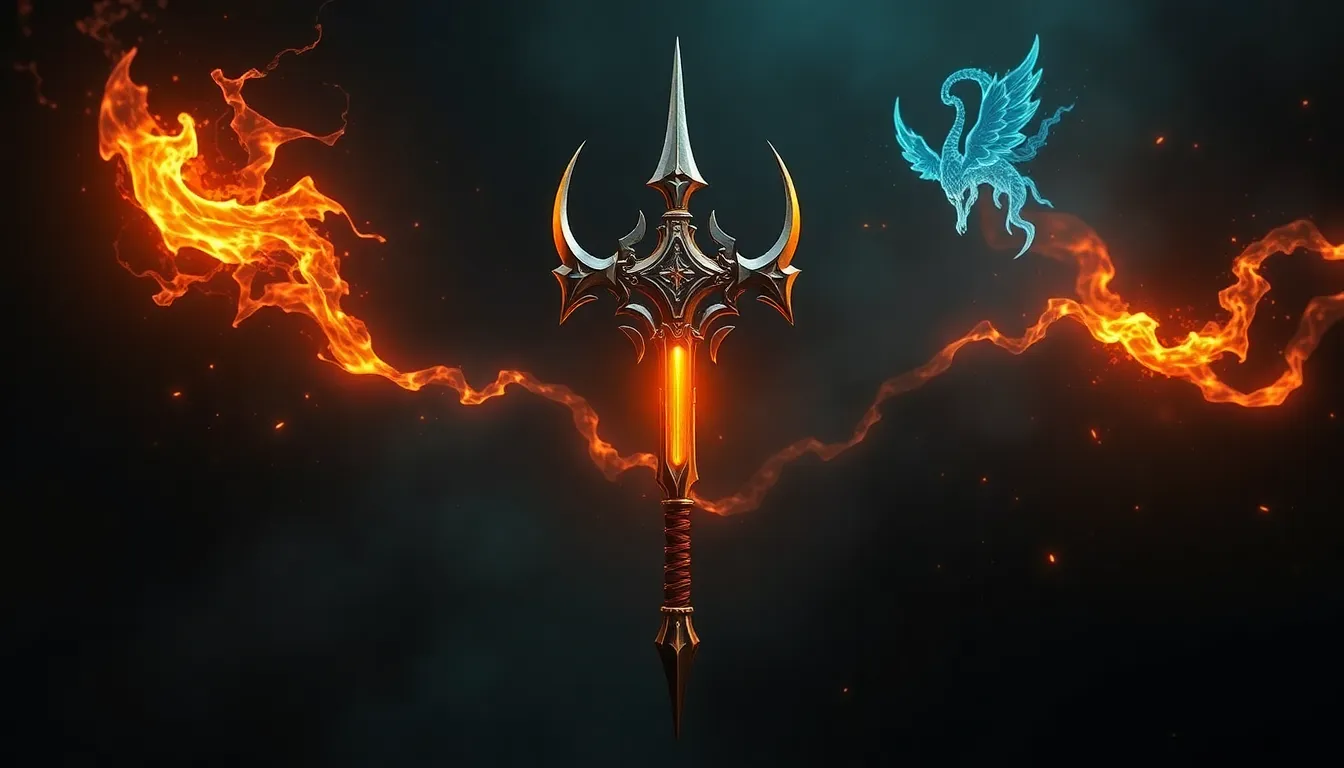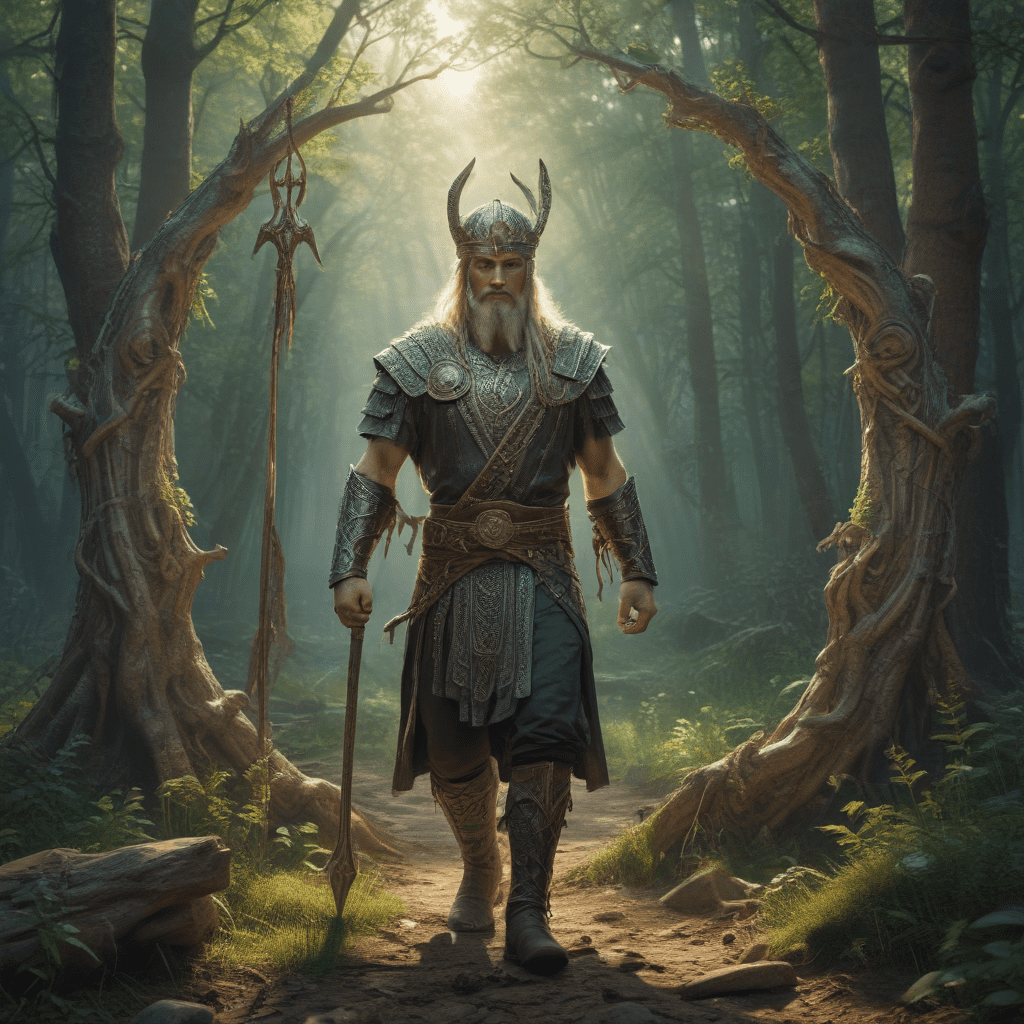The Secrets of the Divine: 7 Mythological Weapons with Hidden Powers
Introduction
Mythological weapons have long captivated the imagination of cultures around the world. These artifacts are not merely tools of war; they often embody profound meanings, representing the values, beliefs, and aspirations of the societies that created them. The significance of hidden powers in mythology adds an intriguing layer to these weapons, suggesting that they are more than they seem at first glance.
This article aims to explore seven legendary weapons from various mythologies, delving into their origins, the hidden powers they possess, and the cultural significance they hold. From the enchanting sword of a king to the formidable hammer of a god, each weapon has a story to tell.
The Origins of Mythological Weapons
Mythological weapons often have deep historical roots, reflecting the values and struggles of ancient societies. These weapons were typically crafted by skilled artisans who were believed to be inspired by the divine.
- Historical Context: Many ancient cultures viewed weapons as extensions of their gods’ will, designed to protect or punish humanity.
- Divine Craftsmanship: Legendary blacksmiths, such as Hephaestus in Greek mythology or Wayland the Smith in Anglo-Saxon lore, were often credited with creating these powerful artifacts.
These mythological weapons serve as symbols of power, justice, and the struggle between good and evil, making them integral to the narratives of their respective cultures.
1. Excalibur: The Sword of Destiny
Excalibur, the legendary sword of King Arthur, is steeped in tales of chivalry and noble virtue. According to Arthurian legend, Excalibur was given to Arthur by the Lady of the Lake, symbolizing his rightful claim to the throne.
Hidden Powers: Excalibur is said to possess several hidden powers, including:
- Sovereignty: Excalibur grants legitimacy to its wielder, representing the divine right to rule.
- Invincibility: The sword is often depicted as being unbreakable, making its bearer nearly invincible in battle.
- Healing: Some tales suggest that Excalibur can heal the wounds of its wielder.
The symbolism of Excalibur extends beyond mere power; it represents the virtues of leadership, honor, and responsibility.
2. Mjölnir: Thor’s Hammer
In Norse mythology, Mjölnir is the enchanted hammer wielded by Thor, the god of thunder. This weapon is synonymous with strength and protection, playing a crucial role in the defense of the gods against their enemies.
Hidden Powers: Mjölnir is imbued with remarkable abilities, including:
- Control over Thunder: Mjölnir allows Thor to summon storms and unleash lightning.
- Protection: The hammer serves as a powerful shield against chaos and evil.
- Return Ability: Mjölnir is known to return to Thor’s hand after being thrown, symbolizing his unyielding strength.
This weapon embodies not only physical might but also the principles of justice and order in the cosmos.
3. The Trident of Poseidon
The trident of Poseidon, the Greek god of the sea, is a powerful symbol of his dominion over water and storms. Often depicted as a three-pronged spear, it represents the might of the ocean and the forces of nature.
Hidden Powers: Poseidon’s trident grants him several extraordinary abilities:
- Control over Seas: The trident allows him to calm or stir the waters at will.
- Earthquakes: Poseidon is often associated with earthquakes, and the trident is said to be a tool for causing such natural disasters.
- Storms: With his trident, Poseidon can summon fierce storms to protect or punish mortals.
The merging of divine authority with the raw power of nature makes Poseidon’s trident a potent symbol of both creation and destruction.
4. The Spear of Destiny
The Spear of Destiny, also known as the Spear of Longinus, holds a significant place in both historical and mythological narratives. It is said to be the spear that pierced the side of Jesus Christ during the crucifixion.
Hidden Powers: The spear is believed to possess various hidden powers:
- Influence over Fate: It is said that whoever possesses the spear can influence the course of history.
- Victory in Battle: The spear grants its wielder unparalleled prowess in combat.
Cultural interpretations of the Spear of Destiny have varied throughout history, often representing the complex relationship between power, divinity, and mortality.
5. The Bow of Artemis
In Greek mythology, Artemis, the goddess of the hunt, wields a magnificent bow that symbolizes her independence and mastery over nature. The bow is not merely a weapon; it is a reflection of her character and values.
Hidden Powers: The Bow of Artemis possesses several extraordinary attributes:
- Mastery of Archery: Artemis is an unparalleled archer, capable of hitting any target with precision.
- Nature Manipulation: The bow allows her to communicate with and protect the creatures of the wilderness.
- Protection of the Innocent: As a guardian of young women and children, her bow symbolizes protection and justice.
Through her bow, Artemis embodies feminine strength and independence, serving as a powerful figure in mythology.
6. Kusanagi: The Grass-Cutting Sword
Kusanagi, or “Grass-Cutting Sword,” is a legendary sword in Japanese mythology associated with the hero Yamato Takeru. This sword represents bravery and loyalty and plays a crucial role in the unification of Japan.
Hidden Powers: Kusanagi is said to possess remarkable powers:
- Control over Wind: The sword is believed to have the ability to command the winds.
- Cutting through Anything: Kusanagi is known for its unparalleled sharpness, capable of slicing through the toughest materials.
The sword symbolizes not just physical prowess but also the themes of loyalty and the unity of the Japanese people.
7. The Shield of Achilles
The Shield of Achilles, described in Homer’s “Iliad,” is a masterwork of divine craftsmanship created by Hephaestus. This shield is a significant artifact in the epic, symbolizing the hero’s journey and the human experience.
Hidden Powers: The shield is imbued with various powers:
- Reflection of Human Experience: The shield depicts scenes of life, war, and peace, serving as a mirror to humanity.
- Protection: It provides unparalleled defense against attacks, making Achilles nearly invincible.
The Shield of Achilles stands as a metaphor for strength in adversity and the essence of heroism, encapsulating the struggles faced by individuals in their journeys.
Conclusion
The mythological weapons explored in this article not only serve as powerful artifacts but also as symbols of deeper truths about humanity, strength, and the divine. Each weapon carries with it a legacy of hidden powers and cultural significance, enriching the myths and stories that have shaped civilizations throughout history.
As we reflect on these legendary weapons, we are reminded of the timeless themes they represent—leadership, justice, protection, and the eternal struggle between good and evil. The secrets of these divine weapons continue to inspire and captivate, forging connections between past and present.




